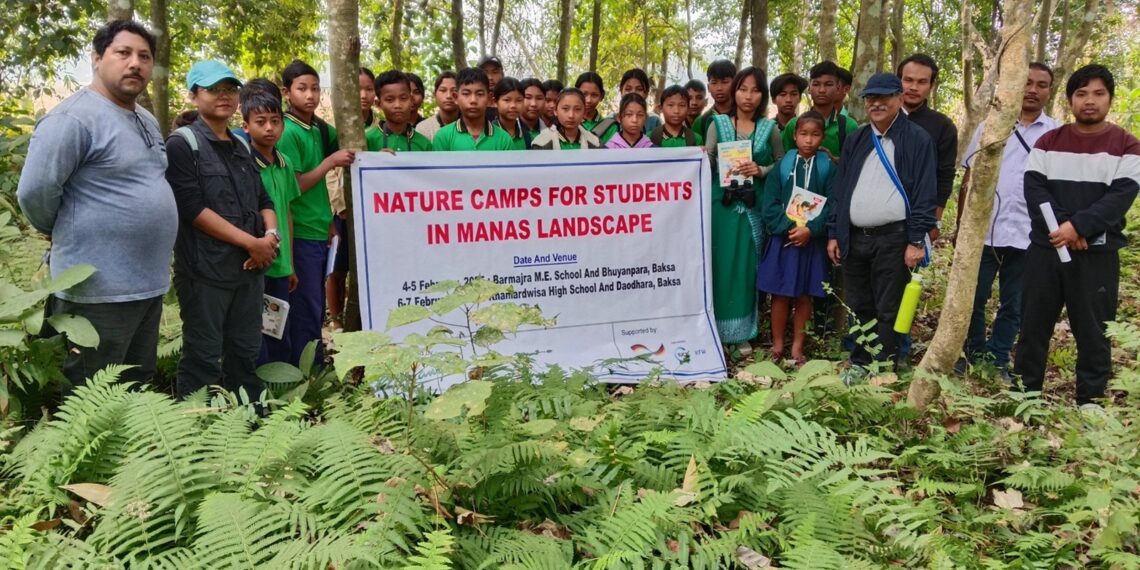Guwahati: Biodiversity conservation organisation Aaranyak recently hosted two nature camps for students from schools located on the periphery of Manas National Park and Tiger Reserve in Assam.
The camps, designed to connect young minds with nature, were part of the IUCN-KfW supported project “Securing Population of Tigers, Habitats, and Biological Corridors in Assam, India.”
A total of 42 students from Bormajra ME School and 26 students from Khamardwisa High School, ranging from Class VII to IX, participated in the educational camps.
On Day 1, the students engaged in a variety of activities designed to foster a deeper understanding of the natural world, including “Understanding and Learning from Nature,” “Understanding Ecosystems and Their Significance,” and a group exercise on observation and documentation.
The students began their experience by engaging their senses in nature—observing, listening, smelling, and touching.
They then documented their sensory experiences in notebooks, an exercise that encouraged deeper reflection and analysis of their surroundings.
As part of the “Understanding Ecosystems” session, participants were introduced to the interdependent functions within ecosystems through the interactive “Web of Life” game.
On the second day, the students embarked on natural trail walks, learning to observe bird species, plant life, and animal signs along the trails.
The walks also provided insight into various land uses in the area.
The Bormajra ME School students followed a trail from their school campus to the Manas Conservation and Outreach Centre of Aaranyak, passing through the Digjiri River and Karebari Village Forest.
Meanwhile, the Khamardwisa High School students explored a trail from Hatijan Bathou Mandir to the Pota River.
Both nature camps culminated in a valedictory session where students shared their experiences.
ALSO READ: Meghalaya government, USTM deny ‘fake varsity’ allegations by Assam CM, demand proof
Aaranyak also presented them with a book on tigers, developed and published by the organisation.
The nature camps were coordinated by Jayanta Kumar Sarma, Senior Programme Associate at Aaranyak, with support from resource person Jayanta Kumar Pathak and other Aaranyak team members.
Food and refreshments during the trail walk at Hatizan were provided by the Dwisa Sher Boro Cuisine women catering group from Hatizan.
Dr. Partha Sarathi Ghosh, Project Coordinator of Aaranyak’s Tiger Research and Conservation Division, highlighted the significance of such programmes, noting that “Environmental education helps students not only learn about nature but also understand the importance of conservation and the threats to the environment. It instills a sense of responsibility towards the environment and equips students with the knowledge to make informed decisions about conservation efforts.”















